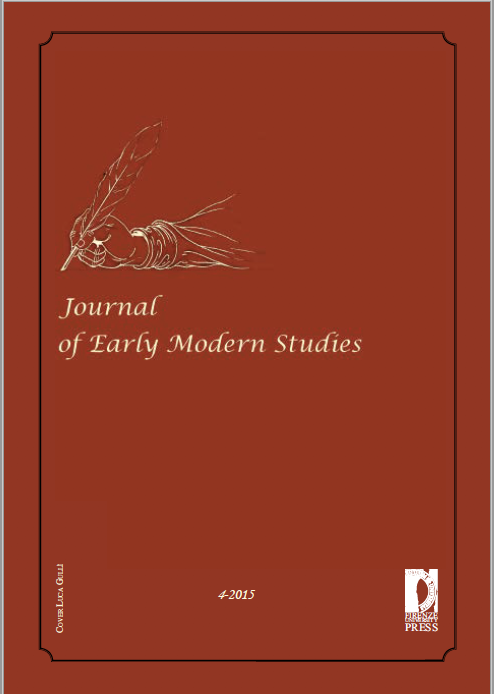Published 2015-03-02
Keywords
- Civility,
- Maximilien de Béthune,
- Memoirs,
- Servants
How to Cite
Abstract
The article seeks to understand some of the cultural work done by servants in the early modern period. By means of a case study, I suggest that gentleman servants may have played an important role in correcting and coaching their masters on manners and civility, a notion which expands Elias’ account of the ‘civilizing process’. I draw on the unique memoirs of the seventeenth-century French noble Maximilien de Béthune, Duc de Sully, a text which Sully wrote as if from the narrative stance of his servants. Focusing on unpublished early versions of the memoirs begun shortly after Sully’s expulsion from court, I examine the complex relationships Sully posits between himself and his gentleman servants, who are presented as narrating Sully’s life story while giving him pointers on better behavior. My analysis highlights the importance of the servants’ maleness and their less threatening lower status in creating a narrative alter-ego through which Sully could think through personal shortcomings and explore the possibility of improving his manners. By showing that servants were intrinsic to the ways in which nobles thought about self-improvement, I seek to include them in the history of manners and to lessen the elitism sometimes associated with Elias’ concept of the civilizing process.


